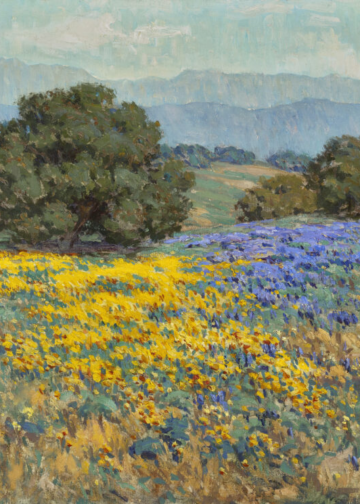It is almost a year since the passing of Fawzi Karim, a poet to whom the international writing community and The Dreaming Machine are much indebted for his great contributions to poetry, literary and musical criticism and painting.
We would like to remember the delight he took in engaging with international audiences, listening to the music of languages foreign to him, trying to capture their secret and mystery.
To cherish his memory, we would like to share here a video taken at the Orecchio di Dioniso Poetry and visual Arts festival in Cesenatico (Italy) in June 2018, which shows him reading in the original Arabic two of his poems The Scent of Mulberry, and At the Gardenia’s Entrance, from his collection Plague Lands and other poems, (Carcanet press 2011, transl. by Anthony Howell) preceded by the reading of the poem in Italian by esteemed poet Antonino Contiliano Italian translation by Pina Piccolo for la Macchina Sognante).
The Scent of Mulberry
Which one of us knows to whom we belong: we to you, with our wrinkled face?
Or you to us, who favor roads of no-return?
Or do both of us, O Baghdad, belong to the hangman?
The scent of mulberry clings to my sleeves,
Bu the mulberry has long since disappeared,
And the fish no longer penetrate the current.
Both began flowing down, like rivers, to the sea.
Who can earn tomorrow’s sustenance
from the memory of a soil fertilized by corpse?
And who can triumph in a wanderlust that is against his nature?
Between the world of nightmare
And the world of water and shade,
Only our poems hang there – like the barriers of barbed wire.
Il profumo del gelso
Chi di noi due sa a chi apparteniamo?
Noi, con questa nostra faccia rugosa, a te?
O tu, amante di strade senza ritorno, a noi?
O piuttosto, è al boia che apparteniamo entrambi, oh Baghdad?
Attaccato alle maniche non mi resta che Il profumo del gelso,
l’albero è un bel po’ che è sparito,
e non ci sono più pesci a penetrare la corrente.
Come fiumi, entrambi sono fluiti a valle, verso il mare.
Dalla memoria di una terra concimata di cadaveri
chi potrà mai guadagnarsi il pane del domani?
E chi mai potrà trionfare se gli è contro natura la voglia di girovagare?
Tra il mondo dell’incubo
e il mondo dell’acqua e dell’ombra,
restano solo le nostre poesie, appese – come barriere di filo spinato.
At the Gardenia’s Entrance
In front of the Gardenia’s bolted entrance,
a middle-aged man with the look f someone who has retired is waiting.
i’m also a middle-aged man, just returned from exile.
I squat just a few feet from him,
and without waisting much time, I ask:
‘Do you know when it opens?’
‘The Gardenia Bar was my hangout before the war.
I used to have my own corner there
with my friends around me.
After the war, it folded, got forgotten.
But I have been coming here for a long time
waiting each day for its door to open.’
He stretched a hand out, holding a rolled cigarette,
and I stretched a hand to take it
and smoke spread, blurring the two men
waiting t the bolted door
on the sidewalk of Abu Nuwas Street
All’entrata del Gardenia
Davanti all’entrata serrata del Gardenia
un uomo di mezz’età, dall’aspetto di pensionato, aspetta.
Anch’io sono un uomo di mezz’età, appena tornato dall’esilio.
Mi accovaccio a qualche metro da lui,
e senza perdere tempo gli chiedo,
“Sa quando apre?”
“Il bar Gardenia lo frequentavo prima della guerra
Lì avevo il mio angolino
con gli amici tutti intorno.
Chiuse dopo la guerra, venne dimenticato.
Ma io è da molto tempo che continuo a venire
aspettando ogni giorno che si apra la porta.”
Mi tese la mano, con dentro una sigaretta rollata,
e io tesi la mia per prenderla
e il fumo invase l’aria, appannando i due uomini
in attesa davanti alla porta serrata
sul marciapiedi di via Abu Nuwas.
A Marble Woman
For twenty years,
I have been observing a shadow pairing of speech and stone
As the poem takes the shape of a marble woman
In the midst of an orchard,
Exposing exquisite lines to the sun.
The more nature grants me of its wisdom,
The more attentive I am to the core of darkness:
To swift claws at my temples,
To the smell
Rapidly diffusing the contaminating touch.
I therefore observe, in the field of my verse,
How the marble appears, in the night,
As a shadow of meaning.
Later one senses the bones, and there comes about
An articulate warmth: the ultimate promise of speech.
Una donna di marmo
Sono vent’anni
che osservo l’abbinarsi ombroso di parola e pietra
mentre la poesia assume la forma di donna di marmo
che in mezzo a un frutteto,
espone al sole le splendide fattezze.
Più la natura mi concede parte della sua saggezza,
più faccio attenzione al suo nucleo di tenebra:
ai graffi veloci alle mie tempie
all’odore
che rapido attenua il tocco contaminato.
Quindi nel campo dei versi osservo
come appare il marmo la notte,
l’ombra del significato.
Dopo si percepiscono le ossa e arrivi
un tepore articolato.
La somma promessa della parola.





















































